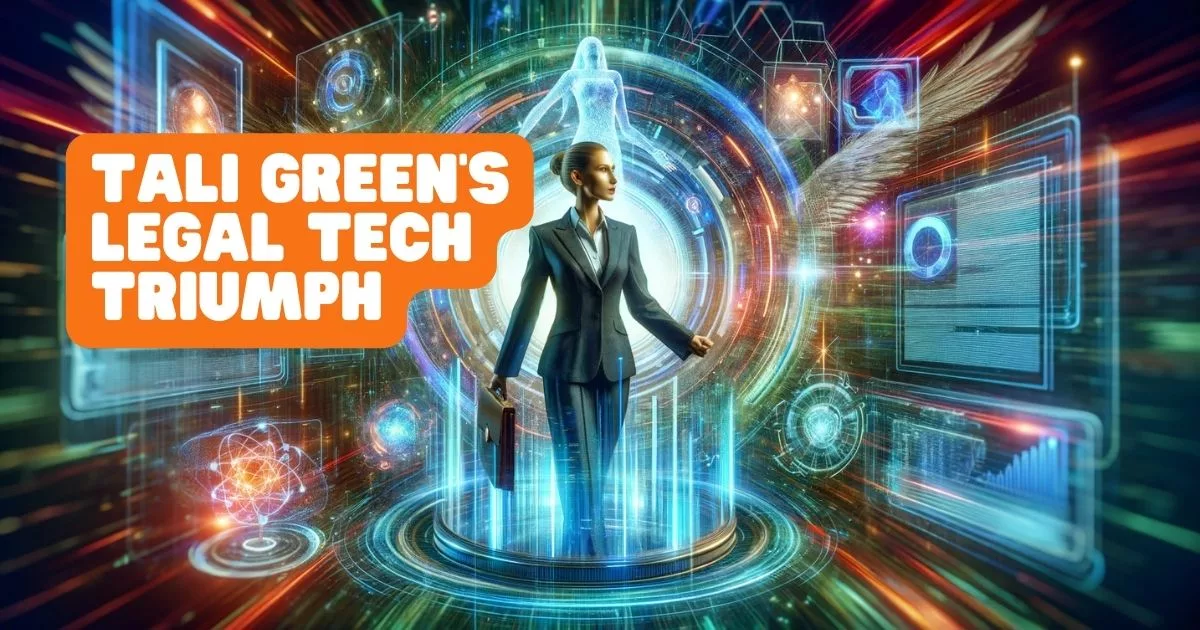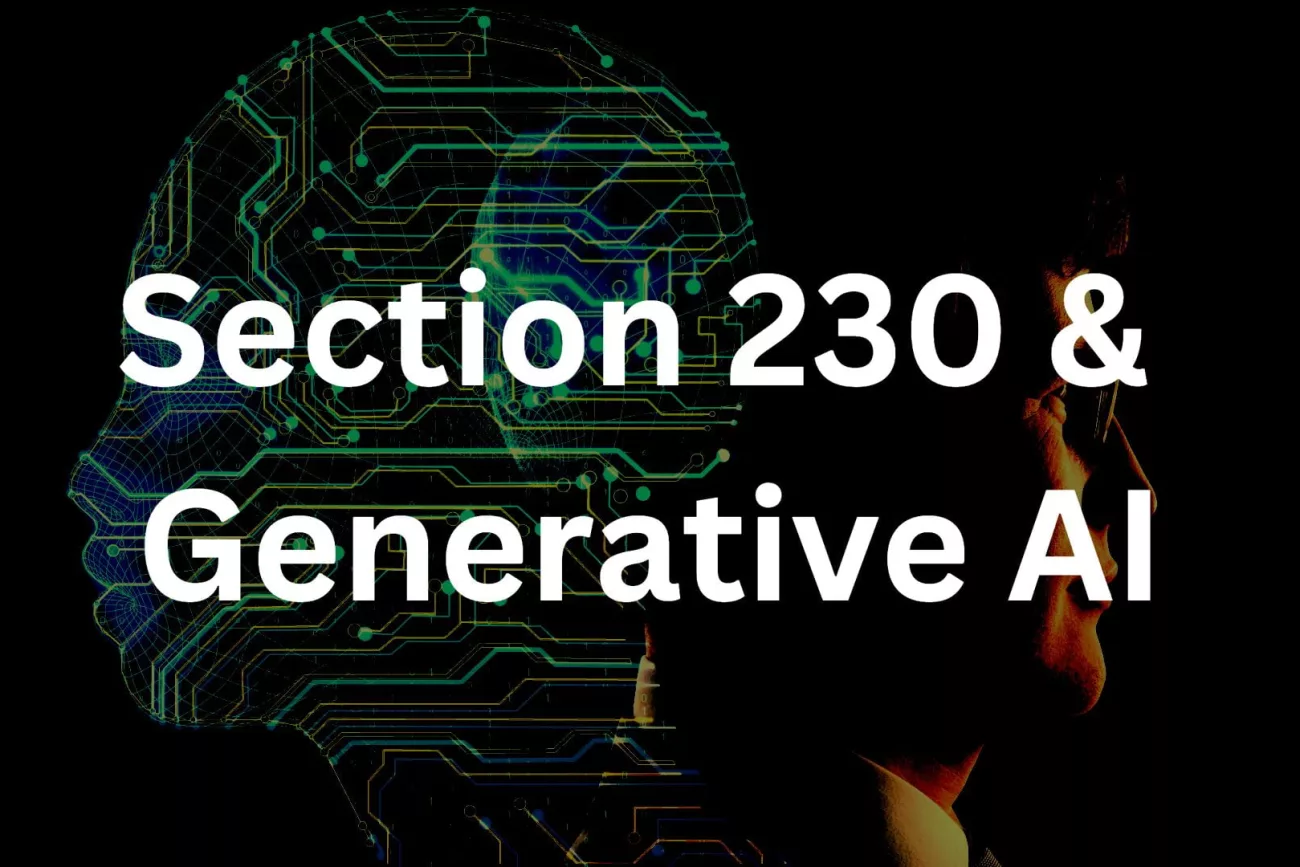
Key Insights
- Innovation Beyond Resources: Tali Green's journey with Goodfact challenges the notion that innovation in legal tech is limited to well-resourced firms, proving that constraints can fuel creativity.
- User-Centric Development: Green's approach to developing Goodfact emphasizes the importance of direct user engagement and feedback in creating solutions that address real legal challenges.
- Cultural Shift in Legal Practice: The increasing emphasis on work-life balance and the rising influence of women in leadership are driving the adoption of technology in the legal sector.
- The Future of Legal Tech: Early adoption of tools like Goodfact is strategic for legal practices, offering opportunities to shape the future of legal tech and maintain a balance between innovation and practical legal work.
Meta’s AI Gamble: Chaos or Progress?
Meta’s groundbreaking decision to make its AI technology open source could shift power dynamics in
Abogados de accidentes de auto: ¿por qué necesitas un abogado después de un accidente de tráfico?
Mike Ruggles Founder & CEO Instagram Linkedin Sígueme en Instagram y LinkedIn para contenido exclusivo
The Future of Artificial Intelligence: Analyzing Elon Musk’s Perspective and the Chatbot Revolution
Chatbot Revolution Key points: Elon Musk’s perspective on AI chatbots like ChatGPT highlights the need
🌟 Breaking Barriers: Tali Green’s Inspiring Journey
Redefining the Innovation Paradigm:
- The Myth of Unlimited Resources: The legal tech world is often seen as a playground for the well-financed. Tali Green shatters this myth, proving that limited resources are not an innovation barrier but a springboard for creativity and determination.
- A Lesson in Resourcefulness: Green’s launch of Goodfact, amidst financial and time constraints, is a testament to her ingenuity. It’s a powerful narrative that challenges the traditional mindset of innovation being the sole domain of those with extensive backing.
Innovation in the Face of Adversity:
- The Power of Constraint-Driven Innovation: Green’s experience underscores a critical lesson for legal tech startups: constraints can be a powerful catalyst for innovation. Facing limitations forces entrepreneurs to think more creatively, fostering unique solutions that might not emerge in a resource-abundant environment.
- Inspiration for Solo Practitioners and Small Firms: Green’s story resonates with solo practitioners and small law firms. It illustrates that innovation is not just possible but potentially more impactful when developed in response to genuine, on-the-ground challenges faced by smaller entities.
📈 Practical Insights for Legal Tech Startups:
- Strategies for Success Under Constraints: Legal tech startups should view constraints not as hurdles but as opportunities. By focusing on core needs and adopting lean methodologies, they can develop solutions that address real problems efficiently.
- Case Study Analysis: Examining other successful startups that thrived under limitations can provide valuable insights into effective strategies and practices that can be replicated or adapted in the legal tech sphere.
Learning from Tali Green’s Approach:
- Balancing Innovation with Practicality: Green’s journey teaches the importance of balancing innovative aspirations with practical realities. It’s crucial for legal tech startups to develop solutions that are not only technologically advanced but also practically applicable and accessible to their target audience.
- Engaging with the Legal Community: Startups can learn from Green’s hands-on approach to user engagement. Directly interacting with potential users to gather feedback and understand their pain points is invaluable for developing tools that truly resonate with the legal community.
Will AI Take Over Legal Jobs In A Free Market?
Dive deep into the AI-law conundrum: from robo-barristers to human touch. Are we poised for
Top Power of Attorney Lawyer Near Me: Hire the Best!
Mike Ruggles Founder & CEO Instagram Linkedin Follow me on Instagram & LinkedIn for exclusive
Demystifying Retainer Fees: The Solo Lawyer’s Guide
Explore the world of retainer fees, understand their importance in the legal realm, and decode
🚀 The Birth of Goodfact
Identifying a Universal Pain Point:
- The Catalyst of Creation: Tali Green’s moment of epiphany arose from a seemingly mundane yet daunting task – sifting through thousands of emails to build a legal chronology. This labor-intensive process, a common frustration in the legal world, was the spark that led to Goodfact’s inception.
- Turning Challenge into Opportunity: Green’s experience highlights a key entrepreneurial principle: great innovations often stem from personal challenges. By addressing a problem she faced firsthand, Green tapped into a universal need within the legal community.
Innovation Rooted in Real-World Challenges:
- Solving a Widespread Issue: The process of chronology building in legal practice, typically manual and time-consuming, was ripe for disruption. Goodfact’s development was more than just a technological advancement; it was a response to a widespread inefficiency in legal workflows.
Validation and Development: A Blueprint for Success
- Engaging with the Legal Community: Green’s method of validating Goodfact underscores the importance of user involvement in product development. By engaging with litigators and understanding their needs, she ensured that Goodfact was tailor-made to address real-world legal challenges.
- Iterative Feedback and Improvement: The development of Goodfact was not done in isolation. Continuous feedback from potential users played a crucial role, enabling Green to refine and adapt the tool to better meet the specific needs of legal professionals.
Practical Lessons for Legal Tech Startups:
- User Feedback is Key: Startups should take a leaf out of Green’s book and prioritize direct engagement with their target audience. Understanding the user’s pain points and preferences is crucial in developing a product that genuinely adds value.
- Iterative Development for Better Solutions: Embracing an iterative development process, where feedback is continuously integrated, can lead to more refined and effective legal tech solutions. This approach allows for adjustments and improvements that align closely with user needs and market demands.
Strategic Development in a Resource-Constrained Environment:
- Maximizing Limited Resources: Green’s journey is a lesson in maximizing efficiency with limited resources. By focusing on the most critical aspects of development and leveraging user feedback, startups can achieve significant milestones without excessive expenditure.
- Adopting Lean Methodologies: Legal tech startups, especially those with constrained resources, can benefit from adopting lean methodologies in their development process. This approach focuses on creating more value with fewer resources, a principle clearly demonstrated in Goodfact’s development.
🌐 The Cultural Shift in Law
The Changing Landscape of Legal Tech
- The Rise of Work-Life Balance: Tali Green’s insights into the legal profession’s evolving priorities signal a major cultural shift. Today, there’s a growing emphasis on achieving a healthy work-life balance, prompting a surge in demand for legal tech solutions that enhance efficiency and save time.
- Technology as an Enabler of Balance: This shift underscores the role of technology not just as a tool for efficiency, but as a crucial component in creating more sustainable and fulfilling legal careers. Legal tech tools, like Goodfact, are becoming indispensable in allowing lawyers to manage their workload without compromising their personal lives.
A New Era of Tech-Savvy Legal Professionals:
- From Tradition to Innovation: The legal industry, traditionally seen as resistant to change, is increasingly embracing technology. This transition is powered by the recognition that tech tools can significantly streamline workflow, reduce stress, and offer better client service.
Women in Leadership: Driving Technological Advancement
- The Impact of Female Leadership: The growing presence of women in key roles within the legal profession is playing a pivotal role in this cultural transformation. Women leaders are often at the forefront of advocating for technology adoption, viewing it as a tool for creating more equitable and efficient work environments.
- Beyond the Billable Hour: As the legal industry gradually moves away from the traditional ‘billable hour’ model, there’s a growing appreciation for holistic practice management. Women in leadership are championing this change, advocating for tech solutions that allow for more flexible and results-oriented approaches.
Practical Implications for Legal Tech Development:
- Understanding the Market Shifts: For legal tech startups, recognizing these cultural shifts is crucial. Understanding the changing needs and priorities of legal professionals, especially the growing influence of female leadership, can guide more targeted and relevant tech developments.
- Developing Inclusive and Versatile Solutions: Legal tech tools should be developed with these shifts in mind, ensuring they cater to a diverse range of legal professionals and practice needs. This includes creating solutions that are versatile, user-friendly, and conducive to a better work-life balance.
Inspiration for Future Innovators:
- Learning from Tali Green’s Path: Green’s journey serves as inspiration for future legal tech innovators. Her success highlights the importance of aligning tech solutions with the evolving needs of the legal profession, particularly in terms of enhancing quality of life and supporting diverse leadership.
Upskill Now: 3 Non-Tech Pathways to Mastering AI Skills
Discover three transformative ways to hone AI skills even if you’re a non-tech professional. Unlock
Power of Attorney Form Virginia
Mike Ruggles Founder & CEO Instagram Linkedin Follow me on Instagram & LinkedIn for exclusive
ChatGPT Store Launch: AI’s New Frontier Unveiled!
Explore the new ChatGPT Store! Discover innovative AI solutions and custom chatbots transforming how we
💡 The Future of Legal Tech and Practice
Advantages of Being an Early Adopter:
- Shaping the Tools of Tomorrow: Tali Green emphasizes the strategic importance of early adoption in legal tech. Early adopters don’t just get a head start on utilizing new technologies; they actively influence the evolution of these tools, ensuring that they evolve in ways that address the specific needs and nuances of their practices.
- Driving Innovation Through Feedback: By being among the first to integrate tools like Goodfact into their workflow, legal professionals can provide direct, actionable feedback, playing a critical role in refining these technologies for wider use.
Balancing Innovation with Legal Practice:
- Green’s Dual Role as an Innovator and Practitioner: Tali Green’s journey epitomizes the modern legal entrepreneur’s role. Her decision to simultaneously develop Goodfact and maintain a selective legal practice highlights an emerging trend in the legal world – blending innovation with hands-on legal work.
- A Model for Future Legal Entrepreneurs: This approach serves as a model for future legal tech innovators. It underscores the importance of staying connected with the day-to-day realities of legal work while pushing the boundaries of technological advancement.
📣 Call to Action: Join the Legal Tech Revolution
Be a Part of the Legal Tech Evolution:
- Diving into the World of Legal Innovation: We invite you to immerse yourself in the fascinating story of Tali Green and the broader shift in legal technology. Subscribe to our newsletter to receive cutting-edge articles, engaging discussions, and the latest updates on legal tech innovations.
- Transform Your Legal Practice: By subscribing, you’ll gain exclusive insights into the dynamic world of legal tech. Stay informed, participate in critical debates, and be at the forefront of the evolving legal tech landscape. Embrace the changes that are reshaping legal practice and discover how tools like Goodfact can revolutionize your work.
Engaging with the Community:
- Participate in Shaping the Future: Your engagement doesn’t just keep you informed; it allows you to be an active participant in shaping the future of legal practice. By understanding and discussing these innovations, you contribute to the collective effort of advancing the legal profession.
👉 Subscribe Now and Be a Pioneer in Legal Tech
Join us in exploring the remarkable journey of Tali Green and others like her who are driving the legal tech revolution. Engage with our content, share your thoughts, and be a part of this exciting journey towards a more efficient, innovative, and balanced future in legal practice.
Share this post
Frequently Asked Questions (FAQs)
Q: Who is Tali Green?
A: Tali Green is an innovator who challenged the status quo by creating Goodfact, a legal tech tool, despite facing time and financial constraints.
Q:What is Goodfact?
A: Goodfact is a legal tech tool developed by Tali Green to streamline the process of building legal chronologies, making it more efficient and user-friendly.
Q: How did Tali Green develop Goodfact?
A: Tali Green developed Goodfact by identifying a common pain point in legal practice, gathering feedback from potential users, and iteratively refining the product.
Q: What does Tali Green's journey signify for legal tech?
A: Her journey highlights that innovation can thrive under constraints and that understanding user needs is key to developing practical legal tech solutions.
Q: Why is early adoption of legal tech tools important?
A: Early adoption allows legal professionals to influence the development of tech tools, ensuring they meet the specific needs of their practices and drive innovation through feedback.















